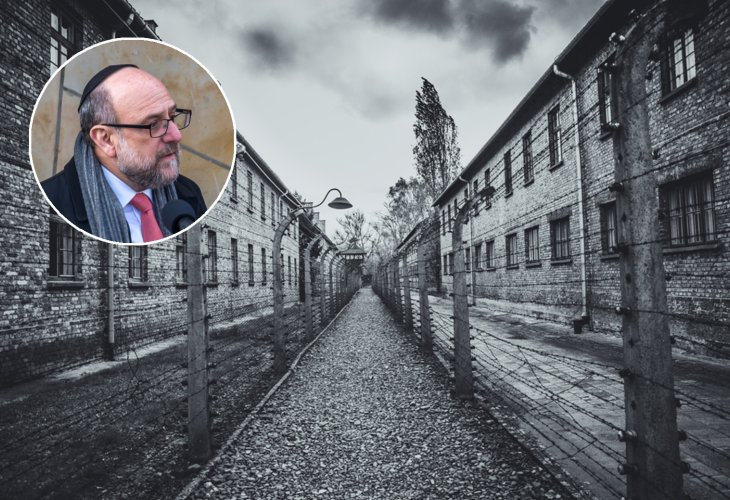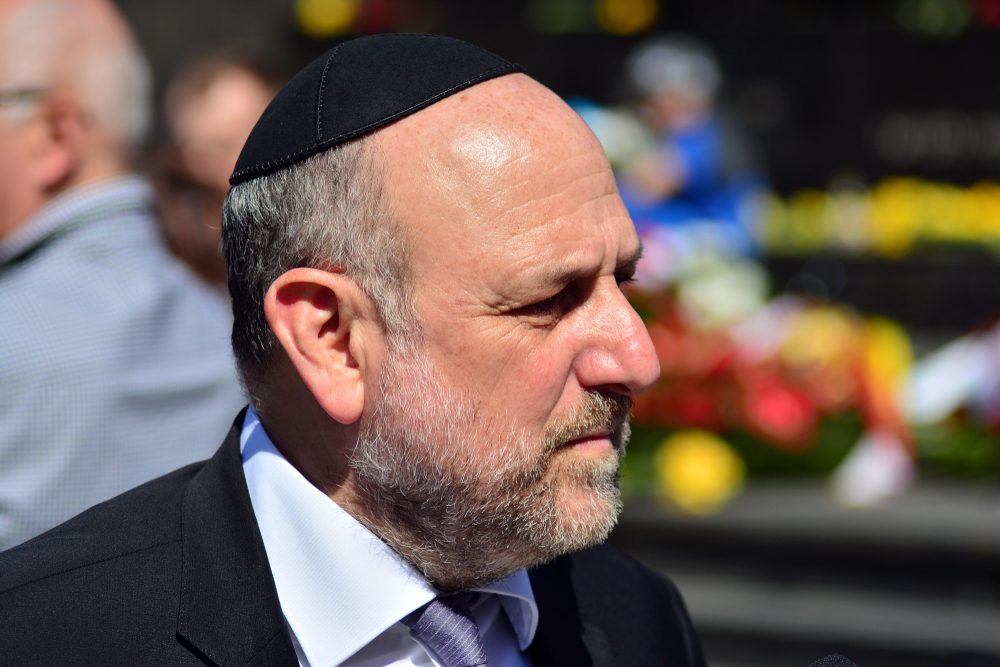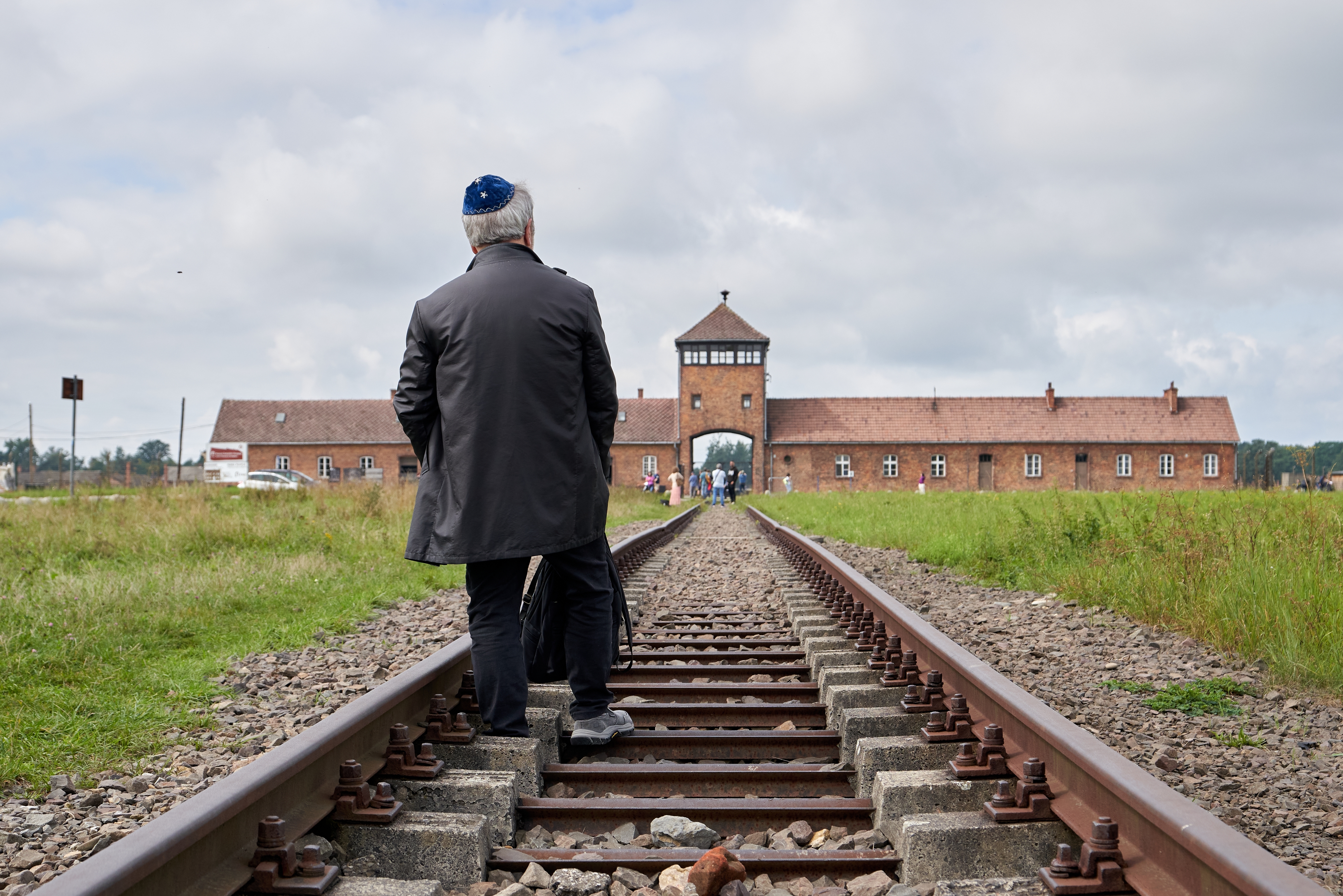Rediscovering Jewish Roots: Poland's "Hidden Jews"
In an exclusive interview, Poland's Chief Rabbi Michael Schudrich delves into the compelling return to Judaism among Poland's "Hidden Jews" and declares: "This is just the beginning."
 Inset: Rabbi Michael Schudrich (Photos: Shutterstock)
Inset: Rabbi Michael Schudrich (Photos: Shutterstock)We conducted our interview with Chief Rabbi Michael Schudrich of Poland just moments after his return from the 'March of the Living' in Oświęcim, held in commemoration of Holocaust Remembrance Day. This is the city housing the Auschwitz-Birkenau extermination camp, the largest of its kind. "The majority of those murdered at Auschwitz were Polish Jews. Ninety percent of Polish Jews perished in the Holocaust, over three million people," Rabbi Schudrich explains. "Sadly, only ten percent of Polish Jews survived the Holocaust, leaving fewer than 300,000 Jews in Poland."
"A Moving Phenomenon"
After World War II, most Polish Jewish Holocaust survivors left for the US. "They didn't want to fear saying 'I'm Jewish,' so it made sense for them to flee," Rabbi Schudrich states. "Moreover, the Soviet politicians who took over the Polish government led a communist regime, making the remaining Jews decide not to be Jewish anymore and completely hide their Jewishness."
With the fall of communism in the early 1980s, the moving phenomenon of "Hidden Jews" returning to their Jewish roots began. Initially, this saw a wave of residents unexpectedly discovering their Jewish heritage, approaching Rabbi Schudrich, who was essentially the only Jewish address in the country. "I began receiving reports of very elderly Jewish men and women who lived as non-Jews revealing to their children just before their deaths that they were Jewish. On one of the earliest occasions, a man came to me and said that his great-grandmother had passed away. During the apartment cleanup, he found Jewish ritual objects. He realized on his own that his family was Jewish," Rabbi Schudrich recalls.
 Chief Rabbi of Poland, Michael Schudrich (Photo: Shutterstock)
Chief Rabbi of Poland, Michael Schudrich (Photo: Shutterstock)"There are various ways, there's no one method," Rabbi says. "As often as not, the most common way is when the dying grandmother reveals to her children that she is Jewish right before passing."
"I can tell you about a very emotional case I witnessed years ago. A man came to me and said his mother had passed away recently, and after the funeral, neighbors told him she wasn't his real mother. They said his biological mother had given birth during the war and handed him over to a Polish non-Jew to raise, saving his life. That man told me, 'If my mother was Jewish, I want to be Jewish too, but I have no idea what to do for that.' It was like Mount Sinai when the Israelites said 'we will do' before 'we will hear.'"
Asked if he's encountered cases of Jews discovering their heritage in unexpected ways, Rabbi Schudrich affirms: "Not too long ago, a woman came to me and said, 'I think my grandmother was Jewish because she baked a type of cracker nobody else made.' She was referring to matzo... She further explained that her grandmother never let them drink milk after eating meat and used particular words nobody understood, like 'meshugeneh' or 'oy vey,' words with distinctly Jewish connotations. Her grandmother presumably had too deep a trauma to outright say 'I am Jewish,' but secretly passed on Jewish concepts."
How do they feel about discovering their Jewish identity?
"There are different reactions," Rabbi says. "Some people tell me, 'Now I understand how meaningful my life is.' On the other hand, there are those who resist accepting they are Jewish until they receive undeniable proof. I hear every conceivable reaction—and some inconceivable ones."
"Everything is New and Foreign to Them"
Rabbi Schudrich reveals that as his tenure as chief rabbi progresses, he continues to be amazed by the number of "Hidden Jews" reaching out to him about their Jewish ancestry. "But more than being surprised, it gives me a lot of hope. Consider that nobody really knows how many 'Hidden Jews' might be spread across the country; it could be far more than we think. We’re doing everything we can to help them return to the Jewish people."
 (Photo: Shutterstock)
(Photo: Shutterstock)"The most critical thing is first to ensure the door is open. Welcoming them, listening, advising them. Then I take them to prayers and classes, and from there to communal Shabbat meals at the synagogue. Besides enabling their return to the Jewish people, we must provide them with a warm and loving community."
The community framework Rabbi Schudrich offers Polish Jews, particularly the Hidden Jews, is both meaningful and engaging. "Take, for example, the communal Shabbat meal held weekly. When I started this project decades ago, community members gathered around set tables, unsure what to do—it was all new and foreign to them. But over the years, they've learned how to participate, and today they host their own Shabbat meals."
"At last year's Passover," Rabbi recounts, "we organized a communal Seder for about 400 people. There wasn't enough room in the synagogue, so we held it in a hotel. There were so many attendees that we had to organize two Seders on separate floors because of the space limitation. I want to express that we didn't just have one Seder; each table conducted its own with a community member leading it. It's important they learn how to do it themselves, without a rabbi guiding them."
Rabbi Schudrich reflects that these communal meals present a significant challenge for him. "Back then, thirty years ago, older Jews primarily attended Shabbat and holiday meals. Today, even the third generation is beginning to join, creating a unique combination. On one side sits those who've lived Jewishly for decades, and opposite them, those who only discovered their Jewish identity a year ago. It's a challenge for me to integrate those just embarking on their Jewish journey with the established community."
"Much Remains to Be Done, This is Only the Beginning"
Actually, the majority of Poland's Jewish community today is grounded in the Hidden Jews. "I believe the vast majority of the current community didn't know about their Jewishness," Rabbi asserts. "Sometimes I wonder how the Jewish world might look if we could go back to the era of the Portuguese Inquisition and if we could bring the Marranos back to Judaism—it wasn't possible at all. But today, 500 years later, there are women in Portugal lighting candles every Shabbat evening in basements without even knowing why. Here in Poland, only eighty years after the Holocaust, our sole capability to bring the Hidden Jews back to the Jewish people depends entirely on our willingness to help them."
Finally, do you believe there's more potential to discover additional Jews?
"Undoubtedly," Rabbi Schudrich states firmly. "The open return of Hidden Jews to Judaism is a phenomenon that continues to this day. Although I can't say exactly where it could lead or how many Jews we might discover in the coming years, I'm sure we've only just begun."

